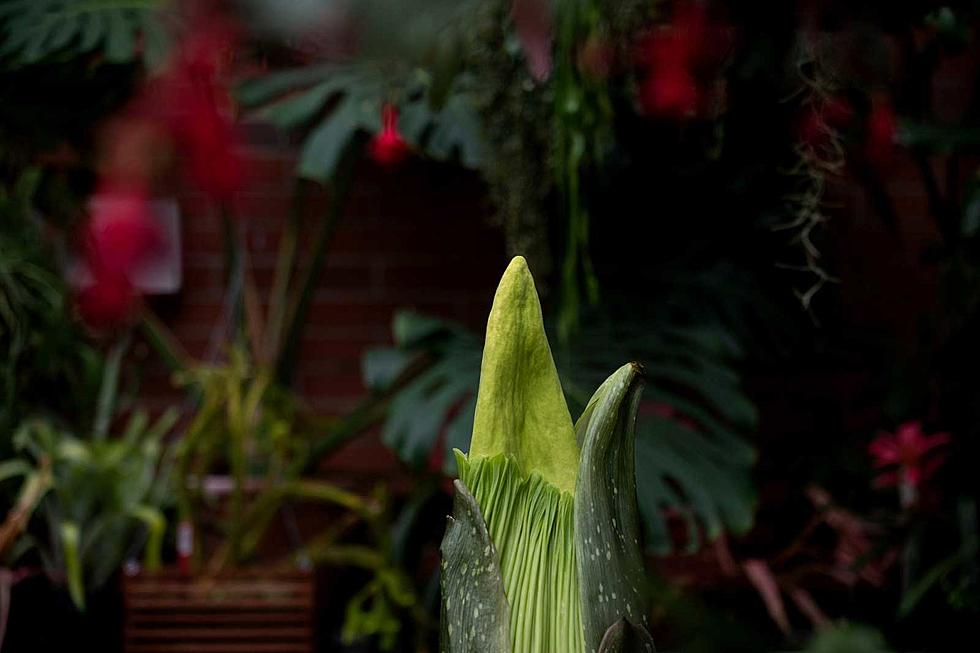
The Corpse Flower is Blooming at Grand Valley State University
This time of year we all start to get excited when we see signs of spring -- and growth of some plants and flowers that died off during the winter.
At Grand Valley State University, they are excited that one of their plants is blooming with a very smelly flower!
The "corpse flower" is at the Grand Valley Greenhouse. The plant is blooming for the first time since it found a home at Grand Valley about seven years ago. The flower, Amorphophallus titanum, was a donation from professor emeritus of biomedical sciences Tim Strickler.
When the flower blooms, it gives off a very strong smell of rotting flesh. This stench is the plants way of attracting flies that pollinate the plant.
The plant has a bloom cycle of once every seven to 10 years. When the flower opens -- along with the smell -- it also produces a deep burgundy flower. The flower only blooms for about 24-36 hours.
For those interested in seeing -- and smelling -- the flower in person, the Grand Valley State Greenhouse will be open from 10 am to 3 pm while the flower is still open. For those visiting, the greenhouse is located in Kindschi Hall. Parking lots G and F are the most convenient parking locations.
You can read more about the Grand Valley Corpse Flower here.
The corpse flower at Grand Valley State University is not the only flower of its kind in West Michigan. The Frederik Meijer Gardens and Sculpture Park also has a corpse flower in their collection. The plant at Frederik Meijer Gardens last bloomed July 12-14th of 2018. It was the first time the plant had bloomed since they received it as a seedling in 2000. The staff had named the plant "Putricia".
Here is a time lapse video of the corpse flower at Frederik Meijer Gardens back in July 2018...
These Michigan Plants Will Irritate Your Seasonal Allergies
9 Plants That Mosquitoes Absolutely Hate
More From Magic 104.9






![The Best Attractions To Take Out of Town Visitors to in West Michigan [Ranked]](http://townsquare.media/site/44/files/2022/09/attachment-Yinko-Meijer-Gardens.jpg?w=980&q=75)
